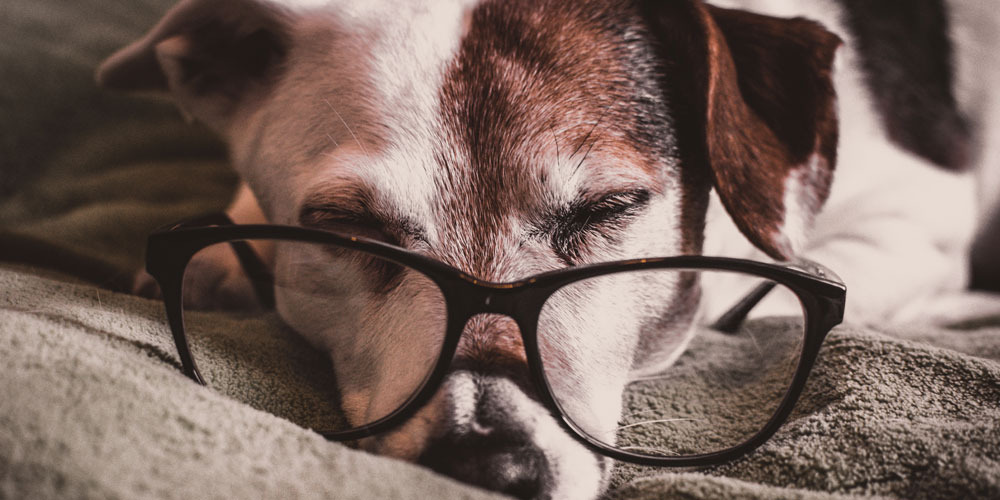All pets age differently, depending on size, breed, lifestyle choices, diet, and environment. Even though she may seem young in your eyes, your dog aged 7 and older, or your cat aged 11 and older, is considered a senior. To keep your senior pets vibrant into old age, consider the following steps:
- Fine tune their diet
Every pet needs a wholesome diet, but aging pets need more care than youthful ones. Elderly pets need more protein than younger pets. The more digestible the protein, and the higher the moisture content, the better for aging organs to process. Meat should be the foundation of a dog or cat’s diet; try to steer clear of any pet food containing a high percentage of carbs, no matter your pet’s age or weight. We can help you choose a pet food that’s right for your pet; ask any time. - Get movin’ – exercise body and mind daily
Senior, and even geriatric pets, still need daily exercise. A nice walk, or a swim, is a wonderful way to provide dogs with mental and physical stimulation and to get their endorphins flowing and joints lubricated. Cats may enjoy chasing a ball, feather toy, or laser pointer. Don’t forget mental exercise as well – keep training, teaching, and actively engaging your pet’s mind as they age to help keep them sharp. - Give your pet a regular in-home spa-like treatment
Many pets enjoy a nice, relaxing massage. Massage also improves circulation, encourages lymphatic drainage, and eases joint stiffness. Don’t forget the toe beans! A paw pad rub is a nice treat if your pet enjoys it. Massage, and gentle stretching are wonderful natural tools to improve longevity in pets. This would also be a good time to brush a pet’s teeth to help maintain their dental hygiene, which becomes extra important as they age. - Maintain a healthy weight
It’s easy to want to spoil our older pets with extra treats, but extra treats don’t always mean extra love. Excess weight on a pet has a damaging effect on their mobility, and longevity. Pets who are at a normal, healthy weight are less likely to develop arthritis and joint disease as they age. - Consider future mobility issues
Pets don’t have to be in pain as they get older – if you notice your pet becoming physically uncomfortable with normal activity, such as getting up, laying down, finding a comfortable place to sleep, or walking, talk to your vet. The sooner a mobility problem is identified, the better the outcome, generally. Consider a ramp for a pet who is having trouble getting into the car or on to a favorite chair, or gating off stairs and other areas that might become dangerous, to prevent injury. Slippery floors and rugs should also be addressed. - Supplement their diet
A wide range of supplements are available to add to your pet’s diet to help maintain healthy tendons, ligaments, joints, and cartilage as they age. Ask us in store what might be right for your pet. - Consider a baseline senior pet exam – before your pet feels “senior” to you
Regular veterinary checkups are important, particularly as pets age. Some vets offer a baseline screening, which can include bloodwork, and x-rays, to get a clear picture of what a pet looked like before any illness starts to develop. That way, there is something to compare from previous, healthy years. Your vet will tell you what is right for your pet.
We love and adore all pets, but especially our seniors. If you think your aging pet needs an update to their diet or supplement routine, we’d love to help fine tune it for you. Contact us at parrish@leoandluckys.com , call 941-776-0770, or come see us in store for help with your pet’s nutrition. See you soon!



